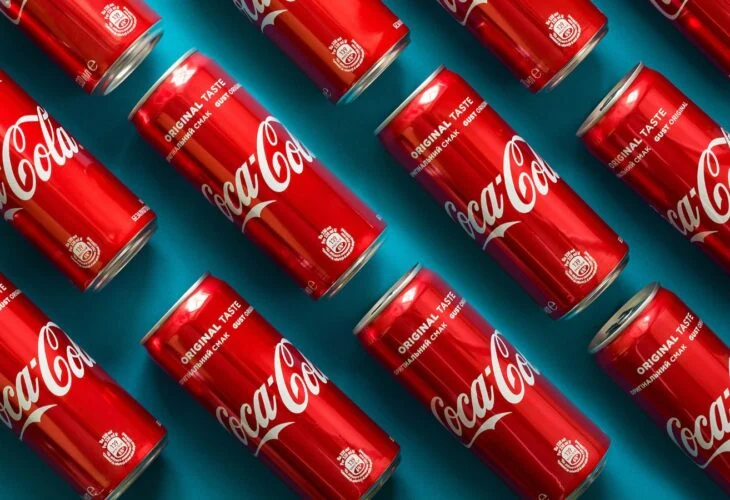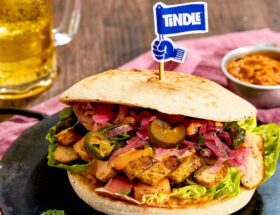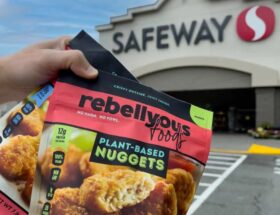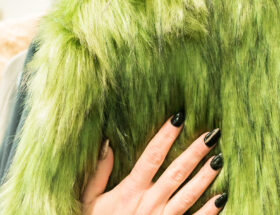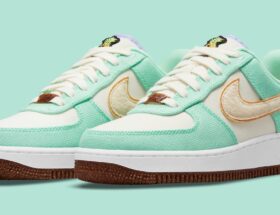Is Coke vegan? Coca-Cola produces a number of sodas and other drinks, but not all are suitable for plant-based diets
Could it be that the world’s most popular fizzy drink is off-limits for vegans? The title is held by Coca-Cola, with its iconic red branding and a taste known all over the globe. The beverage giant is also behind favorites such as Fanta, Dr Pepper, Lilt, and Powerade.
Some of the Coca-Cola Company’s most renowned sodas contain animal-derived ingredients. So is Coke vegan-friendly? And, what soda ingredients make drinks not suitable for vegans?
Coca-Cola history
The Coca-Cola drink was born way back in 1886 in Atlanta, Georgia. Pharmacist Dr John Stith Pemberton crafted the syrup, serving it inside a jug down the streets outside Jacob’s Pharmacy.
Since then, there have been many iterations, such as Diet Coke, Coca-Cola Zero Sugar, and flavors like cherry, lime, mango, and vanilla.
Now, the Coca-Cola Company has hundreds of brands and products to its name, including soda, juice, kombucha, tea, coffee, water, and flavored alcoholic beverages. These are sold in more than 200 countries and territories.
Over 2022, the company pulled in a staggering $42 billion in revenue.
Is Coke vegan?
Coca-Cola confirms on its website that its classic drink of the same name is indeed vegan-friendly.
“The vast majority of our drinks, including Coca-Cola, are suitable for vegetarians and vegans,” it states.
Coke ingredients explained
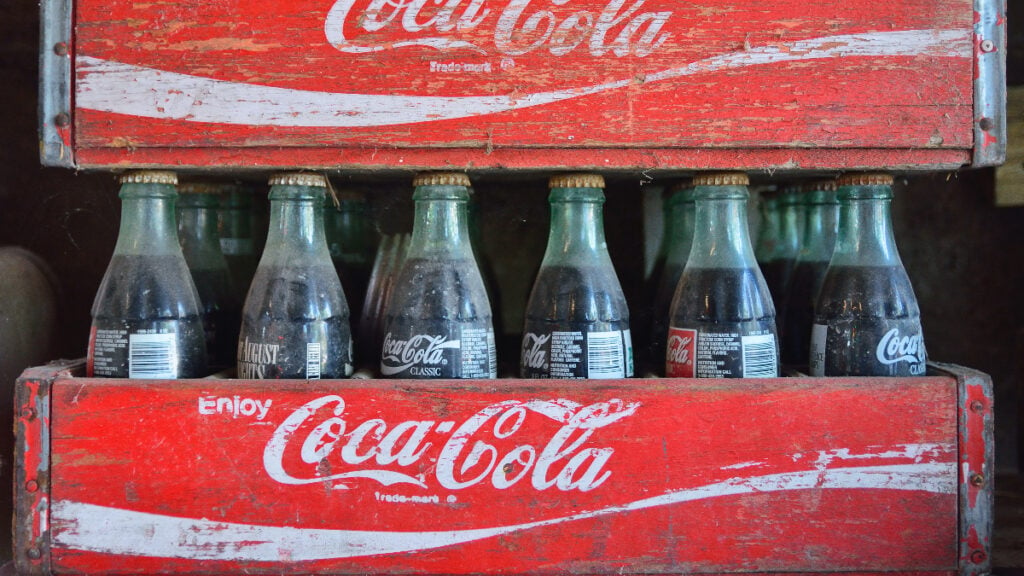
Coca-Cola Classic contains six ingredients, though the drink is around 90 percent carbonated water. It also includes sugar, caramel color, phosphoric acid, caffeine, and a blend of secret natural flavors.
On the surface, it would appear that these are vegan ingredients.
There is some confusion, however, about whether Coke is actually suitable for vegans. This is due to the fact that it contains sugar (around 39 grams in each can).
Is sugar vegan?
In some parts of the world (including the US), sugar is occasionally considered unsuitable for vegans. This is because it can be made using animal bones.
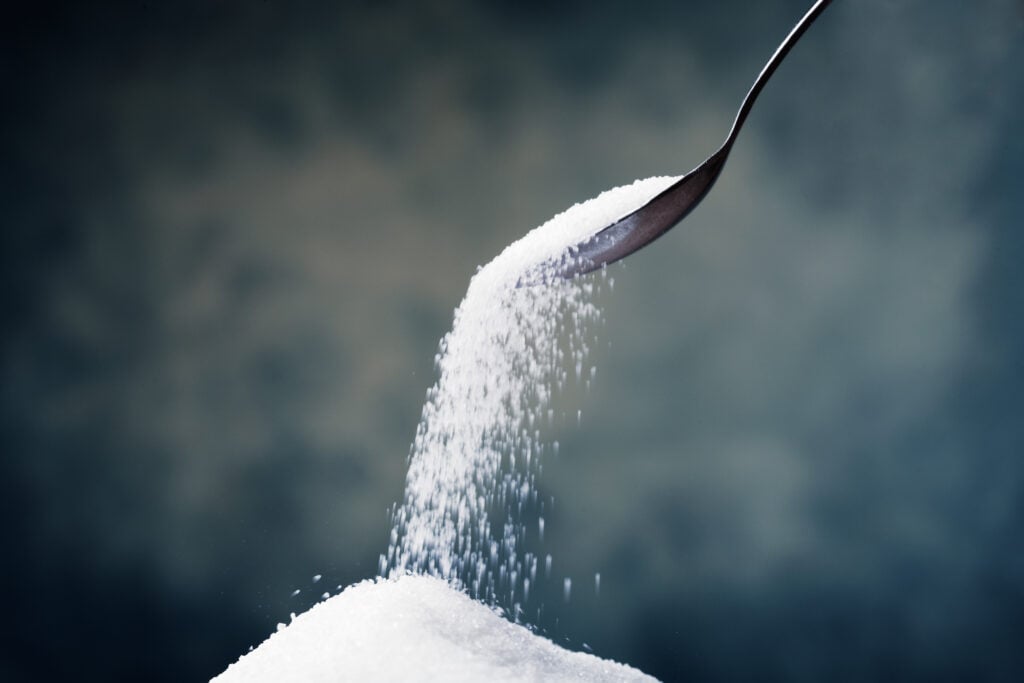
Bone char, as it’s often known, is added to achieve a white color. But it’s unlikely you’ll find it listed on the box of your favorite brand. The char, also called “natural carbon,” comes from the bones of slaughtered cows.
Despite brown sugar not needing white coloring, some brown sugar producers still use bone char.
A gray area of veganism?
Some vegans may avoid ingredients that are connected to animals in any way — such as sugar and even some fruits and vegetables. But this view isn’t necessarily shared across the community.
A widely used definition of veganism comes from The Vegan Society, a 79-year-old charity working on accelerating the movement.
“Veganism is a philosophy and way of living which seeks to exclude—as far as is possible and practicable—all forms of exploitation of, and cruelty to, animals for food, clothing or any other purpose,” the definition reads.
PETA has also weighed in on the matter. It has proclaimed that eating vegan isn’t necessarily about “perfection,” and that you shouldn’t “stress too hard” about sugar if you’re unsure exactly how it was produced.
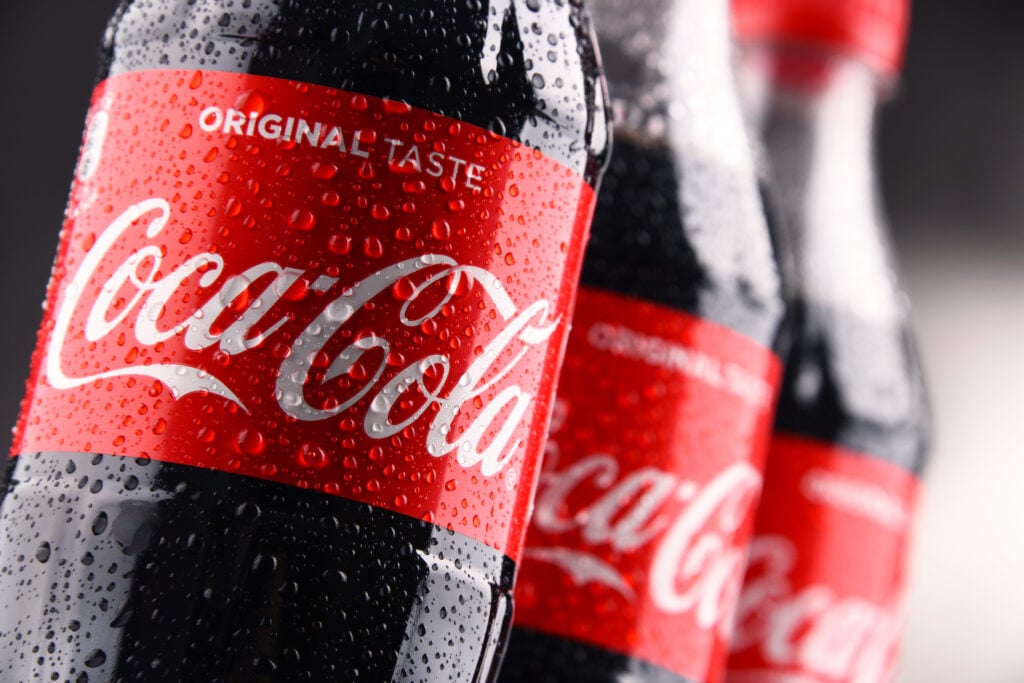
What Coca-Cola drinks aren’t vegan?
While Coke is widely considered vegan, some of Coca-Cola’s most well-known drink brands aren’t. These include Lilt and some Schweppes products, as they contain fish gelatin.
The following products contain animal products:
- Barista Bros
- Costa Coffee Ready-to-Drink Caramel Latte
- Costa Coffee Ready-to-Drink Latte
- Costa Coffee Ready-to-Drink Americano
- Glaceau Vitaminwater Zero Sunshine and Multi V
- Honest (Lemon and Honey)
- Kia-Ora Orange Squash No Added Sugar
- Lilt
- Lilt Zero
- Schweppes Indian Tonic Water
- Schweppes Orange Squash
Vegan options at Coca-Cola
Coca-Cola confirms that most of its drinks are vegan-friendly. They include:
- Appletiser
- Coke Classic
- Coke No Sugar
- Coke Raspberry
- Coke Vanilla
- Coke Zero
- Diet Coke
- Dr Pepper
- Fanta Orange
- Fanta Jelly Fizz
- Fanta Passionfruit Cream
- Fuzetea
- Glaceau Smartwater/Vitaminwater
- Grapetiser
- Lift
- Oasis
- Powerade
- Rose’s
- Sprite
Does Coca-Cola test on animals?
In the past, Coca-Cola was reportedly involved in controversial production practices, such as force-feeding rats its “caramel color.”
But back in 2007, Coca-Cola said it would stop conducting and funding animal tests. In a letter shared by PETA, the company stated: “The Coca-Cola Company does not conduct animal tests and does not directly fund animal tests on beverages.”
Moreover, it said it would send letters to partners and research organizations insisting they use alternative methods.

